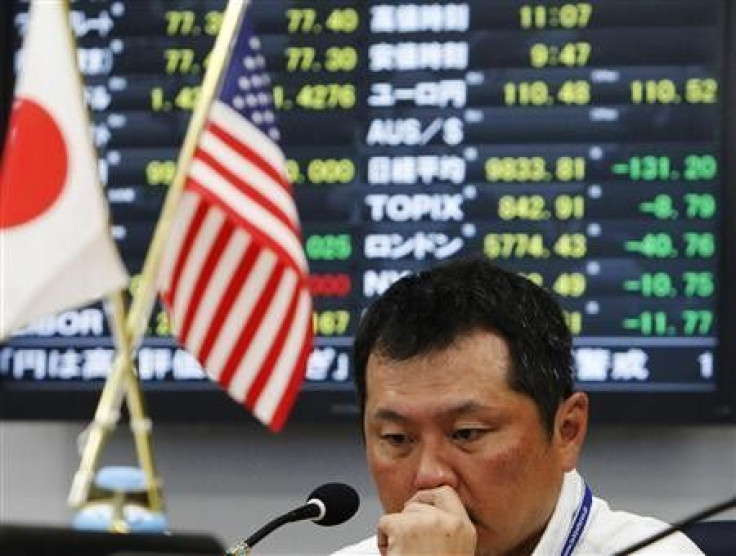Dow Plunges 512 Points, Governments Running Out of (Easy) Tricks?
(COLUMN)

The U.S. and European markets got killed on Thursday.
The Dow Jones Industrial Average fell 512.76 points, or 4.13 percent, to close at 11,383.68. The S&P 500 Index fell 60.27 points, or 4.78 percent, to end at 1,200.07. The NASADQ fell 5.08 percent.
Over in Europe, yields on Italian 10-year bonds hit a euro-era high and the Milan stock market fell over 5 percent.
The problems facing the U.S. (poor jobs market and faltering real estate sector) and EU (poor growth prospects and indebtedness) aren't new. However, there is a growing sense of pessimism that policy makers are running out of tricks, at least ones they can easily pull out.
ECB President Jean-Claude Trichet's press conference on Thursday was case in point. While he assured the market that the ECB is open to bond buying operations, and the ECB did indeed do some actual buying, it wasn't nearly enough to calm the market, which went on to see further turmoil.
Investors were concerned about how much Trichet and other European officials can do. How much can the ECB buy without totally violating its principles? Can leaders in Germany and France muster the domestic political backing to do another round of bailout (for Italy, the third biggest economy in the euro zone)?
If the crisis deepens, core European officials will have more political capital to bail out Italy. The fear, however, is precisely that it needs to get much worse.
The same logic applies in the U.S. If the Federal Reserve were to roll out QE3, the Dow would likely stage a tremendous rally. In fact, whispers of QE3 gave the markets a slight boost on Wednesday.
However, the reality quickly set in that things will have to get much worse - and the Dow must go down more - before QE3 has a realistic chance of overcoming the loud opposition domestically (Tea Party and investors like Bill Gross) and abroad (the Chinese and the Brazilians).
Thursday's huge drop likely coincided with the major announcement of the July jobs data on Friday; in times of heightened uncertainty, investors often take money off the table before a market-moving event.
However, whereas QE2 stepped in to save the day relatively quickly in 2010, it'll take a lot more pains and declines before QE3 would come, even if Friday's jobs report proves to be terrible.
© Copyright IBTimes 2024. All rights reserved.











